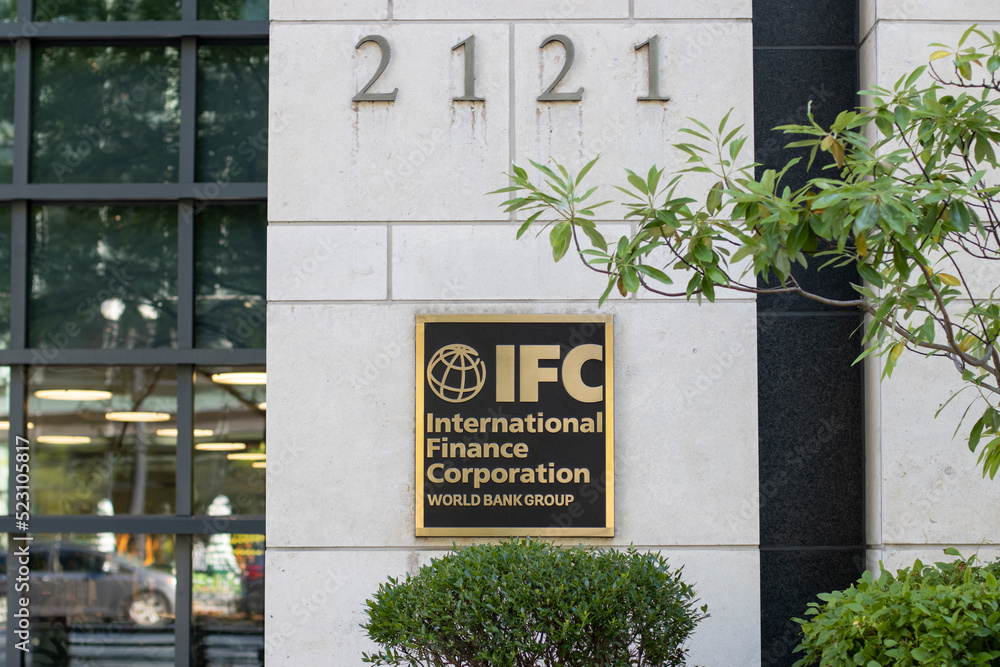The Need for a Sanction System for IFC Clients Violating Performance Standards: Ensuring Accountability Beyond Financial Fraud

Author: Amy Ekdawi
Imagine two parallel universes within the world of Multilateral Development Banks (MDBs): one where financial integrity reigns supreme, and another where human and environmental well-being often takes a backseat. When a client comes under intense scrutiny from an MDB’s integrity unit for suspected financial fraud, a chilling effect immediately sweeps across the institution¹. New investments? Flat-out rejected. Existing funds? Often frozen. The very word “debarment” looms, promising public shaming and an international blacklisting that slams shut the doors to future MDB-backed projects. This is the MDBs’ “zero tolerance” in full, fierce display, a testament to their unwavering commitment to safeguarding every dollar. But then, shift your gaze to the universe of environmental and social safeguards. Here, a client implicated in devastating pollution or displacement, perhaps under investigation by one of the MDB’s independent accountability mechanisms, often continues to receive funding. The response is a world apart: not immediate cessation, but a protracted dance of “supervision” and “Management Action Plans” that can stretch for years, leaving harmed communities in limbo. This stark divergence doesn’t just reveal a policy gap; it screams a fundamental truth: for MDBs, the sanctity of a dollar often eclipses the sanctity of human lives and the planet. Their ‘zero tolerance,’ it seems, is a luxury reserved exclusively for financial misconduct, not for the equally, if not more, profound and irreversible toll of environmental and social devastation.
Consider the case of Titan Cement, where the European Bank for Reconstruction and Development (EBRD) invested in its bonds² in 2016 and again in 2020. This occurred despite the International Finance Corporation (IFC)’s accountability mechanism, the Compliance Advisor and Ombudsman (CAO), being meticulously engaged in investigating allegations of severe environmental pollution and social harms stemming from Titan’s Egyptian plant³. Now, imagine if the tables were turned: if Titan Alex were instead under direct investigation by the IFC’s debarment unit for financial fraud, for instance, allegations of falsifying financial statements to secure a loan or illicitly diverting funds. The entire dynamic would shatter instantly. New bond investments by the EBRD—or any Multilateral Development Bank (MDB)—would be unthinkable, immediately stopped by the MDB’s strict “zero tolerance” policy on prohibited practices. This sharp contrast reveals a fundamental truth: when it comes to protecting their financial assets, MDBs act quickly and decisively. But when the harm involves environmental damage or social injustice, the response is often more lenient, delayed, and far less decisive.
To address the need to protect communities and the environment, the IFC has recently taken steps, notably with the approval of its new interim Remedial Action Framework (RAF) by the Boards of Directors of IFC and MIGA on April 3, 2025⁴, making it the first MDB to adopt an explicit policy on remedy. This framework emphasizes effective implementation and monitoring of its performance standards/safeguards⁵ as the first step in preventing harm, aiming to provide a structured approach to addressing environmental and social harm. Simultaneously, the IFC has embarked on a comprehensive, multi-year review of its Sustainability Framework and Performance Standards⁶, a process officially launched in April 2025 and expected to conclude in 2028. According to the IFC, these initiatives are designed to ensure that social and environmental safeguards are followed in all projects to prevent and mitigate potential harms. However, despite these important developments, the current RAF, while a step forward, has been criticized by civil society for stopping short of establishing direct punitive measures for clients who violate these standards. Moreover, the inherent mandate of its accountability mechanism (the CAO), like those of other MDBs, remains focused on holding the IFC itself accountable for potential violations of social and environmental standards/safeguards, not the client directly. Crucially, no binding mechanism similar to debarment exists in any MDB to hold the client accountable for E&S violations, as it does for financial misconduct. This critical moment, with the interim RAF being implemented and the Performance Standards under comprehensive review, presents an urgent and ideal opportunity to push for this fundamental shift. The absence of a sanction system for violations of social and environmental performance standards/safeguards creates a significant gap in the IFC’s accountability mechanisms.
While the debarment system for financial fraud acts as a deterrent and ensures compliance with financial regulations, a similar system is needed to uphold social and environmental responsibilities. Here are key reasons why such a system is necessary:
Ensuring Comprehensive Accountability
A sanction system for performance standard violations would ensure that clients are held accountable for their actions across all aspects of their operations, not just financial conduct. This holistic approach to accountability would reinforce the importance of social and environmental stewardship as integral components of sustainable business practices.
Deterrence of Non-Compliance
The threat of punitive measures would serve as a deterrent for clients considering cutting corners or neglecting their social and environmental obligations. Knowing that violations could result in significant consequences, clients would be more likely to prioritize compliance and adhere to the standards set forth by the IFC.
Protecting Vulnerable Communities and Ecosystems
Many of the IFC’s projects operate in regions where communities and ecosystems are particularly vulnerable. Without a system to penalize non-compliance, these safeguards may be disregarded, leading to significant harm. Implementing a sanction system would underscore the IFC’s commitment to protecting these at-risk populations and environments.
Maintaining the IFC’s Credibility and Integrity
The IFC’s reputation as a leader in sustainable development finance is partly built on its commitment to high standards of conduct. A sanction system would enhance the credibility and integrity of the IFC by demonstrating that it takes all aspects of its performance standards seriously and is willing to enforce them rigorously.
Conclusion
Amid the ongoing update of the Sustainability Framework and the rollout of the Remedial Action Framework (RAF), the IFC has a pivotal opportunity to truly do things right. This moment is critical for the institution to restore trust, demonstrate genuine leadership, and rebuild its credibility. Cases like Bridge International Academies, where the IFC continued to be associated with a client despite grave allegations of child abuses and subsequent findings of non-compliance⁷ with its own standards, underscore the profound need for this restoration. Introducing a sanctions system for clients who violate Performance Standards could be an important step in putting an end to future violations by the same clients, cementing a commitment to holistic, responsible business practices and ensuring comprehensive accountability and protection for vulnerable communities and environments.
¹ World Bank Group Sanctions System available at https://www.worldbank.org/en/about/unit/sanctions-system
² EBRD’s investment in Titan Euro Bonds. Available at https://www.ebrd.com/home/work-with-us/projects/psd/52337.html
³ The complaint against Titan and the CAO investigation report. Available at: https://www.cao-ombudsman.org/case/egypt-alex-dev-01wadi-al-qamar
⁴ IFC/MIGA Interim Approach to Remedial Actions. Available at: https://www.ifc.org/content/dam/ifc/doc/2025/ifc-miga-remedial-action-framework-en.pdf
⁵ IFC’s Performance Standards adopted in 2012. Available at: https://www.ifc.org/en/insights-reports/2012/ifc-performance-standards
⁶ IFC launches a review process of its Sustainability Framework. Available at: https://www.ifc.org/en/what-we-do/sector-expertise/sustainability/policies-and-standards/update-of-ifc-s-sustainability-framework
⁷ Links to all the complaints filed against Bridge International Academies in Kenya, and the findings can be found at https://www.cao-ombudsman.org/news/cao-cases-regarding-ifcs-investment-bridge-international-academies-kenya
